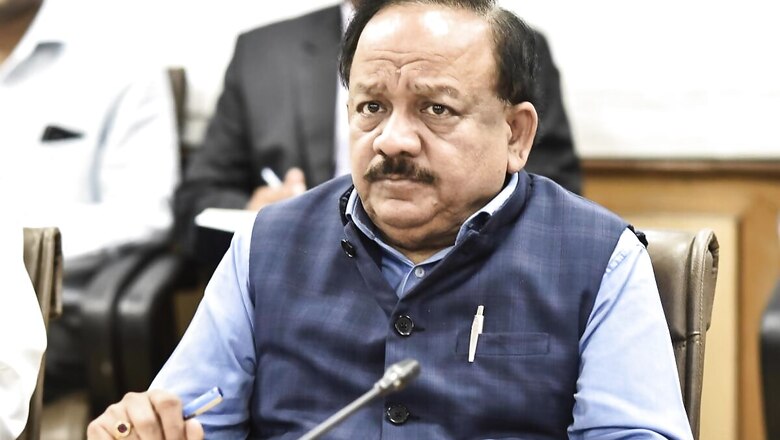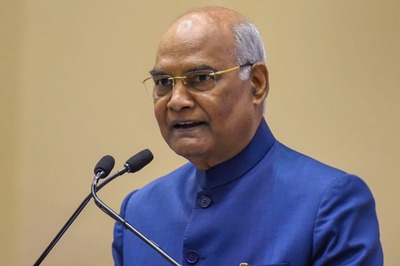
views
The science, technology and innovation (STI) ecosystem has undergone rapid transformation in terms of relevance, scope and scale, and a new policy is being formulated to capture these aspects, Science and Technology Minister Harsh Vardhan said on Friday. Speaking at the inauguration of ‘In Conversation With’, a series of interactions with thought leaders on the Science, Technology and Innovation Policy (STIP), 2020, which is being formulated, Vardhan invited stakeholders and the public to participate in forming an evidence-driven and inclusive STIP.
The country is now formulating a new national STIP which adopts a unique approach of being decentralised, inclusive, evidence driven and knowledge supported, he said. This will be the second major policy to be brought by the government during this year, the minister said. The Union Cabinet had last month approved the National Education Policy.
These policies, he said, are being brought by the government at a crucial juncture when India is grappling with the COVID-19 pandemic. “One would wonder, if this was the right time to formulate these policies. The answer lies in the fact that there has been some outstanding progress made by India in recent years in the area of STI,” Vardhan said.
“In fact, the entire STI ecosystem has undergone rapid transformation in terms of relevance, scope and scale in these years. These must be captured into a policy to develop a long development trajectory and vision for the country,” he said. Moreover, the COVID-19 situation has introduced some new learning and added dimensions to the STI system, Vardhan said.
This will need greater focus on development of indigenous technologies and encouragement to grass root level innovation, he stressed. “There is an emergence of disruptive and impactful technologies. The country must take advantage of this. The equity and inclusion issues are becoming much more relevant now than earlier. There is a need to integrate traditional knowledge system with conventional R&D,” Vardhan said.
DST Secretary Ashutosh Sharma said as India and the world reorient in the present context of the COVID-19 crisis, a landmark policy initiative, STIP 2020, has been initiated at this crucial juncture. “It is one of the most significant events amidst many important changes in the past decade that have necessitated the formulation of a new outlook and strategy for Science, Technology, and Innovation (STI),” he said.
The formulation process, by design, is envisioned as an inclusive and participatory model with interconnectedness among different tracks of activities, Sharma said. The STIP, 2020, formulation process is organised into four highly interlinked tracks, which will reach out to around 15,000 stakeholders for consultation in the policy formulation.
Track-I involves an extensive public and expert consultation process through the Science Policy Forum, which is a dedicated platform for soliciting inputs from larger public and expert pool during and after the policy drafting process. Track-II comprises experts-driven thematic consultations to feed evidence-informed recommendations into the policy drafting process. Twenty-one focused thematic groups have been constituted for this purpose.
Track-III involves consultations with ministries and states, while Track-IV constitutes apex level multi-stakeholder consultation.




















Comments
0 comment